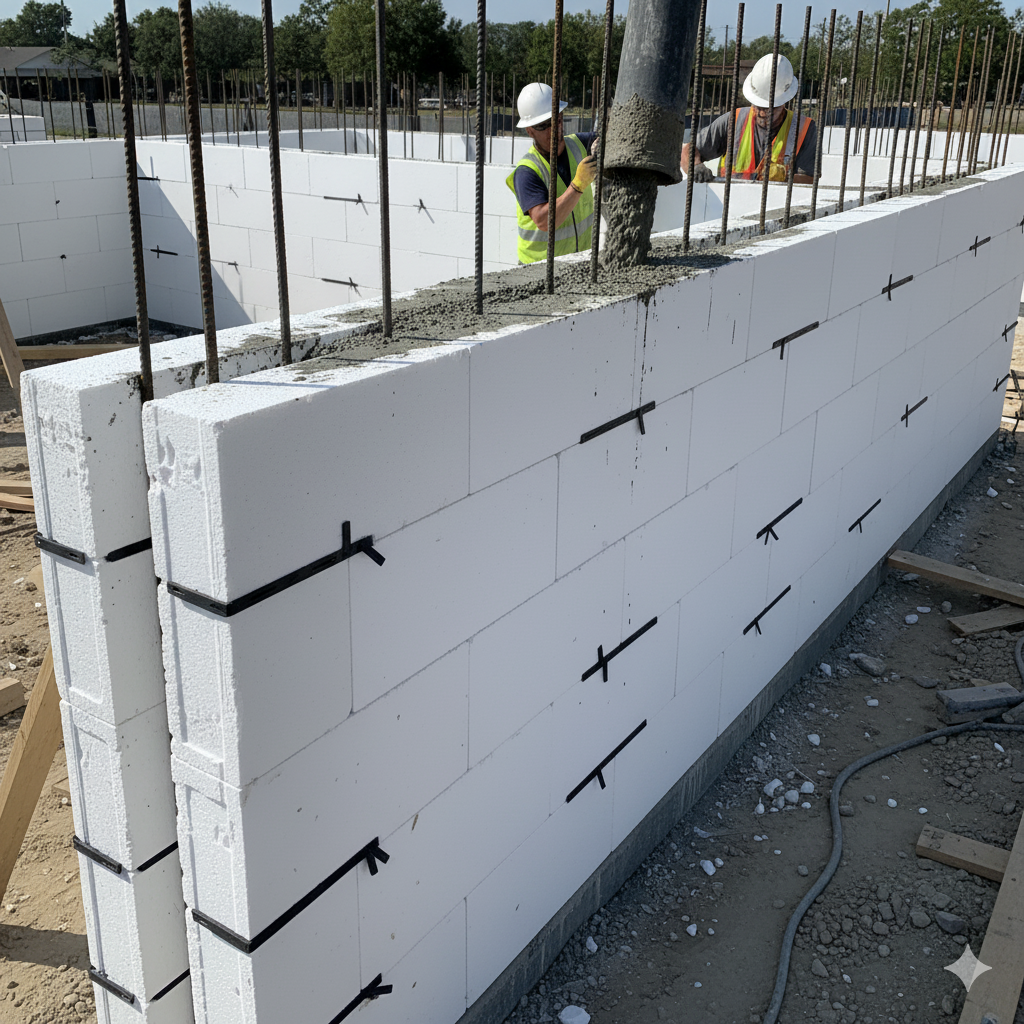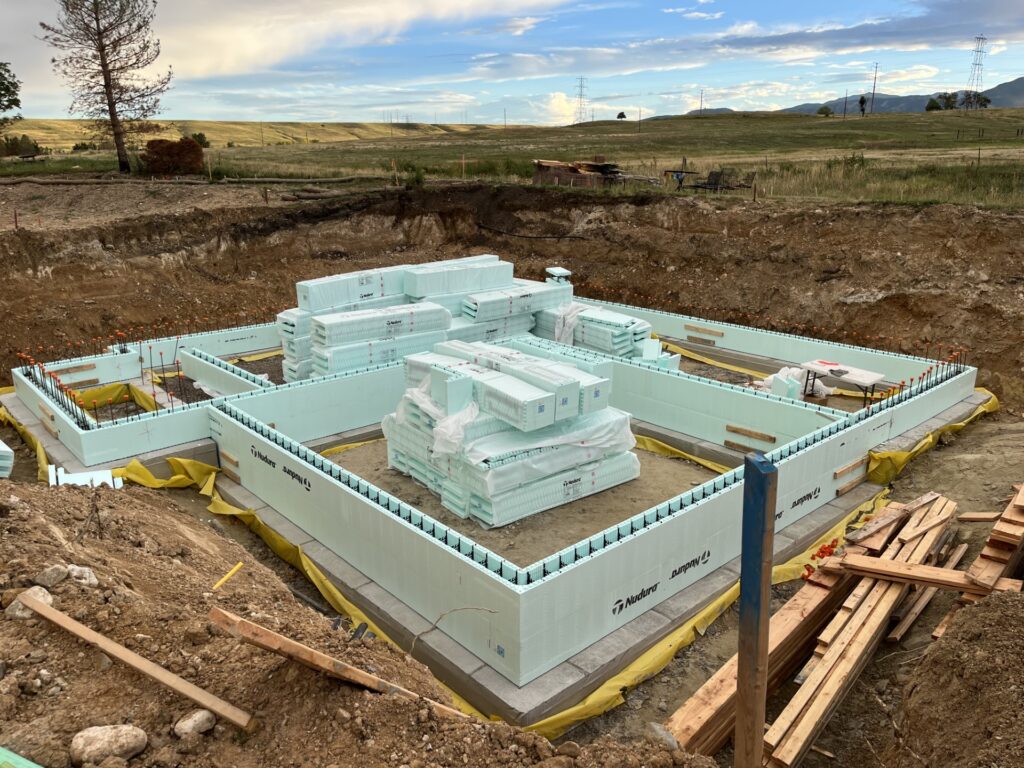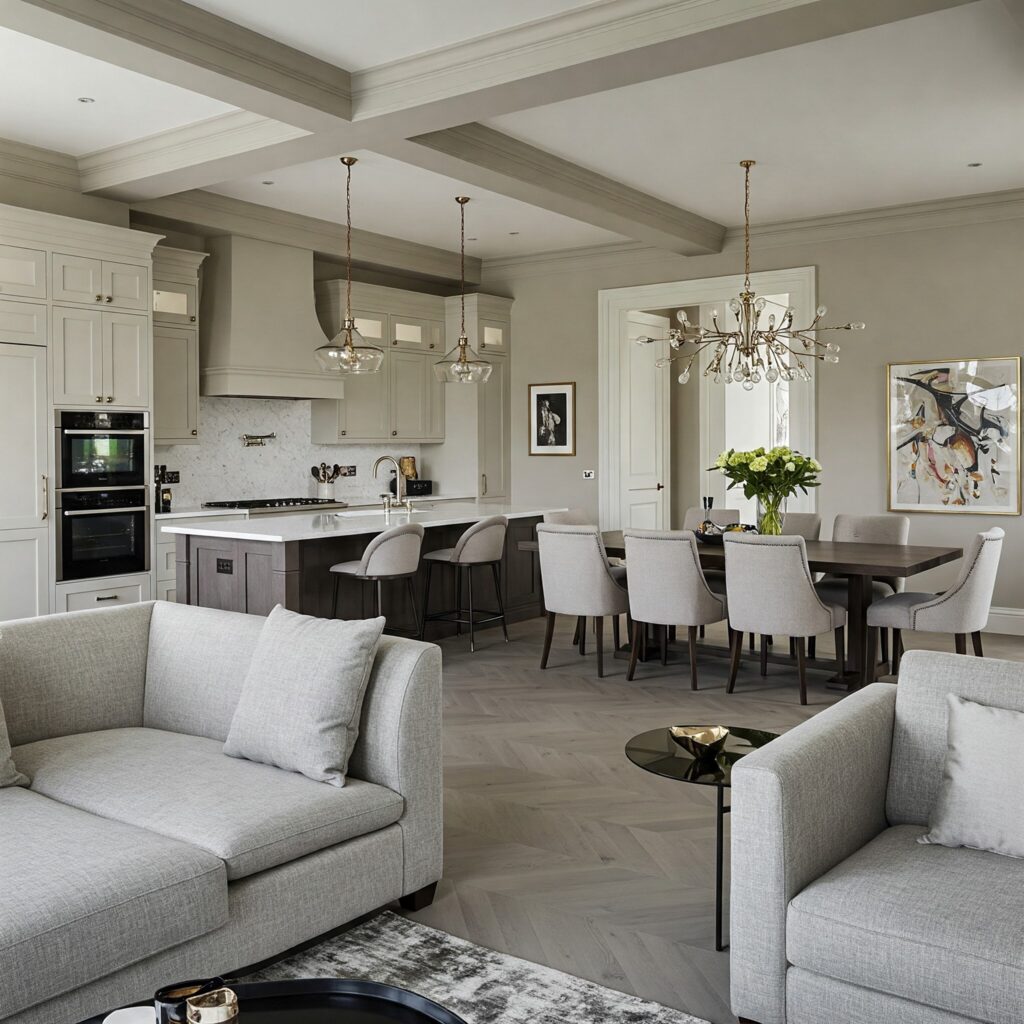Modern home construction is evolving rapidly, and builders are constantly looking for methods that combine durability, energy efficiency, and design flexibility. One technology that is gaining widespread adoption is Insulated Concrete Form walls, commonly known as ICF. These innovative walls offer a unique combination of strength, insulation, and versatility that is changing the way homes are built.
ICF walls are more than a construction trend—they are a practical solution that meets the demands of today’s homeowners. Builders are turning to ICF for its long-term value, performance advantages, and ability to create custom homes that are both functional and beautiful. Understanding why ICF is becoming the preferred choice provides insight into the future of residential construction.
What Are ICF Walls
Insulated Concrete Form walls are built using hollow foam blocks or panels that are stacked to create the structure of a home. Once in place, the forms are filled with reinforced concrete, creating a solid, highly insulated wall. The foam panels remain in place, providing continuous insulation while also supporting finishes like stucco, brick, or siding.
This construction method combines the strength of concrete with the thermal performance of modern insulation. The result is a home that is more energy-efficient, quieter, and stronger than traditional wood-frame construction.
Durability and Strength
One of the primary reasons builders are choosing ICF is its unmatched durability. Concrete walls can withstand harsh weather, high winds, and natural disasters better than conventional construction. In hurricane-prone areas or regions with heavy rainfall, ICF homes provide peace of mind that traditional framing may not offer.
In addition to external durability, ICF walls resist mold, rot, and pest infestations, common issues in wooden structures. This longevity reduces maintenance costs and ensures the home remains structurally sound for decades. Builders recognize the value of constructing homes that stand the test of time, which makes ICF an appealing choice.
Energy Efficiency and Comfort
ICF walls are highly energy-efficient due to their continuous insulation and airtight construction. Homeowners benefit from lower heating and cooling costs, more consistent indoor temperatures, and improved overall comfort. Builders appreciate that energy-efficient homes are increasingly in demand, as buyers are looking for properties that reduce utility bills and environmental impact.
The thermal mass of concrete also contributes to energy performance by storing heat and releasing it slowly, helping to stabilize indoor temperatures. This makes ICF homes comfortable year-round, regardless of extreme weather conditions.
Design Flexibility for Custom Homes
Despite their strength and insulation benefits, ICF walls are surprisingly versatile when it comes to design. Builders can create a variety of shapes, including curved walls, open floor plans, and large window openings. This flexibility allows homeowners to realize their vision without compromising on structural integrity or performance.
ICF construction also accommodates multiple finishes, from traditional brick to modern stucco or siding. Builders can combine aesthetic appeal with energy efficiency and durability, providing homeowners with a truly custom home experience.
Faster and Safer Construction
While ICF may seem more complex than traditional wood framing, it can actually streamline construction. The forms are lightweight, easy to stack, and reduce the number of steps required to build walls. Concrete pours are straightforward, and the integrated insulation reduces the need for additional insulation steps later.
Safety is another advantage for builders. ICF construction minimizes exposure to the risks of open framing, reduces on-site waste, and provides a cleaner, more controlled building environment. These factors contribute to overall project efficiency and cost-effectiveness.
Meeting Modern Homebuyer Expectations
Today’s homebuyers are looking for more than just a house—they want a home that is safe, energy-efficient, and tailored to their lifestyle. Builders who choose ICF are able to deliver on these expectations. ICF homes align with trends in sustainable building, disaster-resistant construction, and smart energy management.
By offering ICF construction, builders not only differentiate themselves from competitors but also provide long-term value that resonates with homeowners. Energy savings, durability, and comfort are compelling selling points that enhance marketability and buyer satisfaction.
Conclusion
Builders are increasingly choosing ICF for modern home construction because it combines strength, energy efficiency, and design flexibility in a way that traditional methods cannot. From hurricane-resistant walls to customizable designs and reduced energy costs, ICF offers benefits that appeal to both builders and homeowners alike.
As more people prioritize durability, sustainability, and comfort in their homes, ICF construction is likely to continue growing in popularity. For builders committed to delivering quality, modern homes that stand the test of time, ICF is not just an option—it’s the smart choice.





